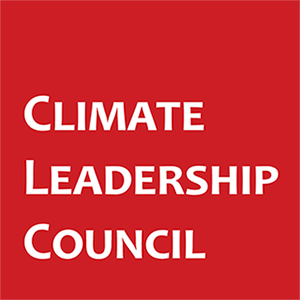Popular Climate and Trade Policy Proposals Expected to Comply with International Agreements
WASHINGTON, DC – A first-of-its kind legal analysis released today by the Climate Leadership Council finds that carbon import fees, including proposals currently being explored in the U.S. Congress, are permissible under the rules of the World Trade Organization (WTO). The report, Carbon Import Fees and the WTO, examines five categories of carbon import fee policies compared against four possible WTO defenses, finding at least one viable path forward for each of the policy design options.
“There is growing support for carbon import fees as a tool to incentivize global emissions reductions. Some have raised concern over the consistency of these measures with WTO rules, but this analysis shows there are credible defenses available for a range of import fee designs,” said Matt Porterfield, report author and vice president, policy and research for the Climate Leadership Council. “While the outcomes of any future disputes can’t be predicted with certainty, the WTO should not be viewed as an impediment to pursuing effective climate and trade policies.”
Questions surrounding WTO compliance have become more pressing as climate and trade policy development surges in 2023. On October 1, the EU’s CBAM will start requiring importers of steel, aluminum, cement, fertilizers, hydrogen, and electricity to disclose production emissions. In the U.S., members of Congress are developing a range of proposals. The Biden administration is negotiating with the EU on border fee provisions for the Global Arrangement for Sustainable Steel and Aluminum, which will set new standards for low-carbon metals.
“A sound U.S. climate and trade policy strategy would reduce global emissions, boost the economy, deepen cooperation with like-minded countries, and hold high emitting nations accountable. Carbon import fees are gaining serious traction as a vehicle to accomplish these goals, and now we feel confident they’re defensible on the international stage,” said Catrina Rorke, senior vice president, policy and research and executive director of the Climate Leadership Council’s Center for Climate and Trade.
Key Findings from Carbon Import Fees and the WTO
- There are WTO defenses for various approaches to carbon import fees, including carbon fees without a corresponding domestic carbon price.
- Economic motives, in addition to climate goals, do not invalidate carbon import fees; alternatives to the WTO’s environmental exceptions can apply to policies that address both climate change and economic issues like non-market excess capacity.
- The EU’s CBAM, like other carbon import fee proposals, will likely require justification under one of the WTO’s exceptions. Accordingly, the U.S. and the EU have a shared interest in promoting interpretations of the exceptions that accommodate carbon import fees.
- Carbon import fees linked to explicit domestic carbon prices are likely permissible without requiring justification under one of the WTO’s exceptions.
The Climate Leadership Council works with a broad set of stakeholders to promote the most cost-effective, equitable and politically-viable climate solutions.

